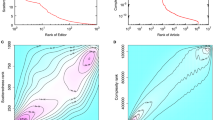Abstract
A huge amount of administrative effort is required for large wiki systems to produce and maintain high quality pages with existing naive access control policies. This paper introduces SocialWiki, a prototype wiki system which leverages the power of social networks to automatically manage reputation and trust for wiki users based on the content they contribute and the ratings they receive. SocialWiki also utilizes interests to facilitate collaborative editing. Although a wiki page is visible to everyone, it can only be edited by a group of users who share similar interests and have a certain level of trust with each other. The editing privilege is circulated among these users to prevent/reduce vandalisms and spams, and to encourage user participation by adding social context to the revision process of a wiki page. By presenting the design and implementation of this proof-of-concept system, we show that social context can be used to build an efficient, self-adaptive and robust collaborative editing system.
Access this chapter
Tax calculation will be finalised at checkout
Purchases are for personal use only
Preview
Unable to display preview. Download preview PDF.
Similar content being viewed by others
References
Thomas Adler, B., de Alfaro, L.: A content-driven reputation system for the Wikipedia. In: WWW 2007: Proceedings of the 16th international conference on World Wide Web, pp. 261–270 (2007)
Angwin, J., Fowler, G.: Volunteers log off as Wikipedia ages (2009)
Banks, L., Ye, S., Huang, Y., Felix Wu, S.: Davis social links: integrating social networks with internet routing. In: LSAD 2007: Proceedings of the 2007 workshop on Large scale attack defense (2007)
Cosley, D.: Suggestbot: Using intelligent task routing to help people find work in wikipedia. In: Proceedings of the 12th international conference on Intelligent user interfaces, pp. 32–41 (2007)
Guha, R.: Open rating systems, Tech. report, Stanford Knowledge Systems Laboratory (2003)
Kinateder, M., Rothermel, K.: Architecture and algorithms for a distributed reputation system. In: Nixon, P., Terzis, S. (eds.) iTrust 2003. LNCS, vol. 2692, pp. 1–16. Springer, Heidelberg (2003)
Miller, G.A.: Wordnet: A lexical database for english. Communications of the ACM 38, 39–41 (1995)
Montaner, M., López, B., de la Rosa, J.L.: Opinion-based filtering through trust. In: Klusch, M., Ossowski, S., Shehory, O. (eds.) CIA 2002. LNCS (LNAI), vol. 2446, p. 164. Springer, Heidelberg (2002)
Neumann, G., Erol, S.: From a social wiki to a social workflow system. In: Proceedings of the First Workshop on BPM and Social Software, pp. 698–708 (2008)
Olsson, T.: Decentralized social filtering based on trust. In: Proceedings of the AAAI 1998 Recommender Systems Workshop (1998)
Rodgers, J.L., Nicewander, A.W.: Thirteen ways to look at the correlation coefficient. The American Statistician 42, 59–66 (1988)
Sarwar, B., Karypis, G., Konstan, J., Reidl, J.: Item-based collaborative filtering recommendation algorithms. In: WWW 2001: Proceedings of the 10th International Conference on World Wide Web (2001)
Sarwar, B.M., Karypis, G., Konstan, J.A., Riedl, J.T.: Application of dimensionality reduction in recommender systems – a case study. In: ACM WebKDD Workshop (2000)
Sinha, R., Swearingen, K.: Comparing recommendations made by online systems and friends. In: Proceedings of the DELOS-NSF Workshop on Personalization and Recommender Systems in Digital Libraries (2001)
Tran, T., Chan, K., Ye, S., Bhattacharyya, P., Garg, A., Lu, X., Wu, S.F.: Design and implementation of davis social links osn kernel. In: Liu, B., Bestavros, A., Du, D.-Z., Wang, J. (eds.) Wireless Algorithms, Systems, and Applications. LNCS, vol. 5682, pp. 527–540. Springer, Heidelberg (2009)
Author information
Authors and Affiliations
Editor information
Editors and Affiliations
Rights and permissions
Copyright information
© 2010 Springer-Verlag Berlin Heidelberg
About this paper
Cite this paper
Zhao, H., Ye, S., Bhattacharyya, P., Rowe, J., Gribble, K., Wu, S.F. (2010). SocialWiki: Bring Order to Wiki Systems with Social Context. In: Bolc, L., Makowski, M., Wierzbicki, A. (eds) Social Informatics. SocInfo 2010. Lecture Notes in Computer Science, vol 6430. Springer, Berlin, Heidelberg. https://doi.org/10.1007/978-3-642-16567-2_17
Download citation
DOI: https://doi.org/10.1007/978-3-642-16567-2_17
Publisher Name: Springer, Berlin, Heidelberg
Print ISBN: 978-3-642-16566-5
Online ISBN: 978-3-642-16567-2
eBook Packages: Computer ScienceComputer Science (R0)




